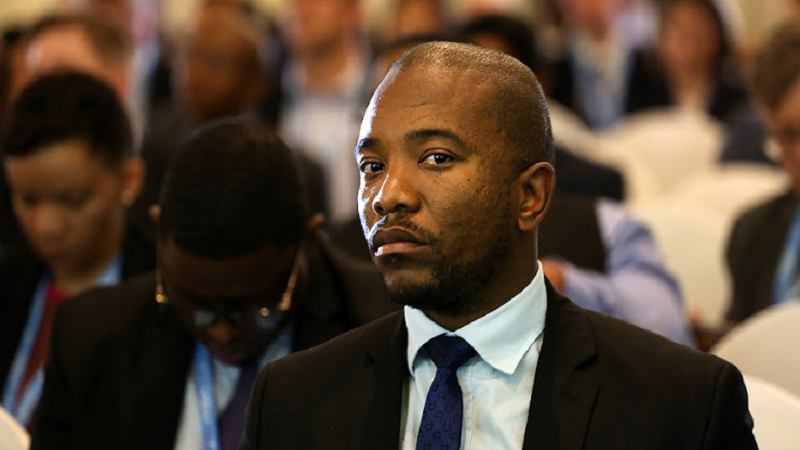Less than 24 hours after his resignation as leader of the Democratic Alliance (DA) opposition party in South Africa, Mmusi Maimane has now tendered his resignation from parliament and the party entirely. Joining Maimane in his resignation from leadership on Wednesday was former mayor of Nelson Mandela Bay and party chairman, Athol Trollip, and days before Maimane’s resignation, the controversial Johannesburg mayor Herman Mashaba. This begs the question: what’s next for Maimane and where does this leave the DA?
The DA has for years faced criticism for, and suspicion of, being a white minority party seeking to lead the black majority of South Africa into voting for them through the use of black leadership symbols, such as Maimane. These symbols have always been suspected of existing precariously within the party structures, serving the purpose of attaining the “black vote” as long as they toe the line when called on to do so by the master puppeteers within the party’s ranks – both official and unofficial.
The recent strife within the DA arguably shows just how deep divisions run, with Maimane’s resignation coming shortly after former party leader Tony Leon reportedly called for Maimane to step down from leadership in a recent document. According to Mcebisi Ndletyana, an associate professor in the department of politics and international relations at the University of Johannesburg speaking on 702, “The party has pretty much gone back to Tony Leon’s DA… They seem to be more concerned about the loss of conservative white voters to the FF Plus than they are about attracting more blacks… It is retreating into a regional, predominantly white party.”
The director of research at the Auwal Socio-Economic Research Institute, Angelo Fick says that Zille’s election as the new chair of the federal executive of the party was “the final nail in Mmusi’s coffin”.
Fick added that leading up to Maimane’s resignation from leadership there have been accusations against Mmusi for use of the “Steinhoff car” as well as Helen Zille’s own move, in defending “the right” for the Institute of Race Relations’ CEO to suggest that “Maimane’s career in the Democratic Alliance ‘might later be read as one of South Africa’s great political tragedies’.”
“Either Mmusi was naïve and didn’t see these things coming and was outmanoeuvred by people like Helen Zille, or, he really felt powerless to counter-manoeuvre because he had no traction in the party to call on people to defend him,” said Fick.
“My sense is that Helen Zille represents a particular ideological position inside the DA as well as people in support of that position.”
Fick continued, saying that those within the DA who stem from the roots of the party became very uncomfortable with the shift Maimane and others wanted to effect in their attempt to call on a larger number of voters in South Africa – more specifically changing the way the DA looks at race, class and the relationship between the two.
Echoing what Mcebisi Ndletyana said, Fick commented that the DA appears to have made a choice regarding their political future as a party in South Africa.
“The DA is entering a crisis where it cannot let go of the old, its traditional base, and embrace the new, which is the majority of people voting in this country. So it must have made the choice to either remain in opposition or to become a regional party rather than have its eye on government.”
He continued, saying that Maimane may end up leaving politics altogether to pursue his vision for the country in “an extra-parliamentary position”.
VOC






 WhatsApp us
WhatsApp us 

